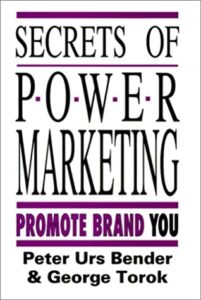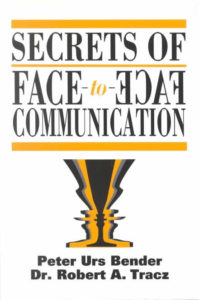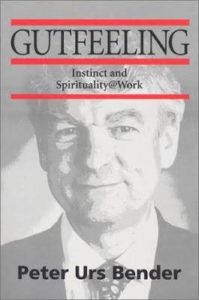Presentation Tips from Canada’s Business Presentation Guru
Who was Canada’s Business Presentation Guru?
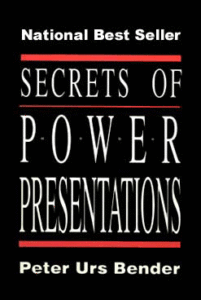 Secrets of Power Presentations was the first of five books authored by Peter Urs Bender. It was also his first bestseller – selling over 100,000 copies.
Secrets of Power Presentations was the first of five books authored by Peter Urs Bender. It was also his first bestseller – selling over 100,000 copies.
Secrets of Power Presentations was a staple at many of Canada’s corporations, colleges and business schools as a resource for effective business presentations.
The Toronto Star declared Peter as Canada’s Business Presentation Guru.
Enjoy this collection of business presentation tips from Peter Urs Bender…
As an entrepreneur, you constantly make presentations to get your points across. Your success depends on your ability to communicate effectively with customers as well as employees. To be competitive, you must become a first-class presenter.
Have a worthwhile message and be ready to communicate it.
Relate your message to something of interest to your audience. If you don’t, you won’t keep their attention for long.
Be specific. Unless you tell your audience exactly what to do in reaction to your message, no changes will occur. They will forget everything you said, and all your efforts will be wasted.
Body language entails all your physical communication tools: voice, breathing, facial expressions, eye contact, gestures, posture, movement and the way you dress.
Where and when you present also has an impact on your performance. The location and size of the room, temperature, lighting and schedule of breaks can all contribute to the success or failure of your presentation.
The most critical element of any presentation is the preparation and rehearsal of every detail in advance.
There is no right way to organize your presentation. The main thing is to develop a structure. It is always best to keep your structure as simple as possible, with no more than three main points. In a longer presentation, seven points might be acceptable. Your audience will not remember any more ideas than that anyway.
Start with the simplest and most general concepts, then progress to more specific and complicated ones. Begin with familiar ideas you know they already understand and accept, then build on them. Your audience must accept and trust you before they will really listen to you.
Adjust your language to suit each group to which you present. If you are talking to shareholders, bankers or accountants about leveraged buyouts, you use a different vocabulary than if you are talking to marketing people or account executives about strategic selling.
Use vivid, expressive words that paint pictures the audience can see. Abstract concepts like recession, restructuring, corporate culture and revenue enhancement are not as clear as happy customers, plant closings and after-tax profit. Don’t talk about rationalizing your departmental budget when you really mean you are cutting costs.
There are more than 750,000 words in the English language. A high school student has command of about 2000 words, a university student 5000. However, in everyday language, the average businessperson uses only about 1000 words. The most powerful words in our language tend to be short — love, war, sex, money, power.
If a sentence is so long that you must stop to catch a break, it will be too long to be understood. Break long sentences and phrases into shorter ones. Throwing around sophisticated terms and elaborate phraseology is not an advantage. If listeners don’t understand you, your message is dead.
Presentation Tips from Canada’s Business Presentation Guru, Peter Urs Bender
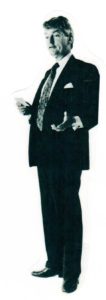 Peter Urs Bender wasn’t a natural born public speaker. He had three challenges to overcome.
Peter Urs Bender wasn’t a natural born public speaker. He had three challenges to overcome.
- Peter was Swiss born and his first language was Swiss German. He visited Canada with the plan of improving his English and then returning home to Switzerland after a couple years. He stayed the rest of his life and never lost his heavy Swiss accent.
- Peter was from a family where they were expected to continue the tradition of working as an accountant in a Swiss Bank. That’s not the model for a professional speaker.
- Peter was dyslexic. When he was growing up, dyslexia was little understood or even recognized. Peter experienced tremendous learning challenges. He often mixed up letters and words. That’s not the promise of a presentation guru.
Despite or maybe in spite of those challenges, Peter Urs Bender was a successful professional speaker and was declared Canada’s Business Presentation Guru.
PS: Peter was my friend and mentor.
Other Books by Peter Urs Bender
Learn more about Peter Urs Bender
Canada’s Business Presentation Guru
George Torok was mentored by Peter Urs Bender.
© George Torok is the Speech Coach for Executives. He coaches business leaders to deliver Superior Presentations. He trains sales teams to deliver successful sales presentations.
Related posts for you
Presentation Tips from Executive Speech Coach


